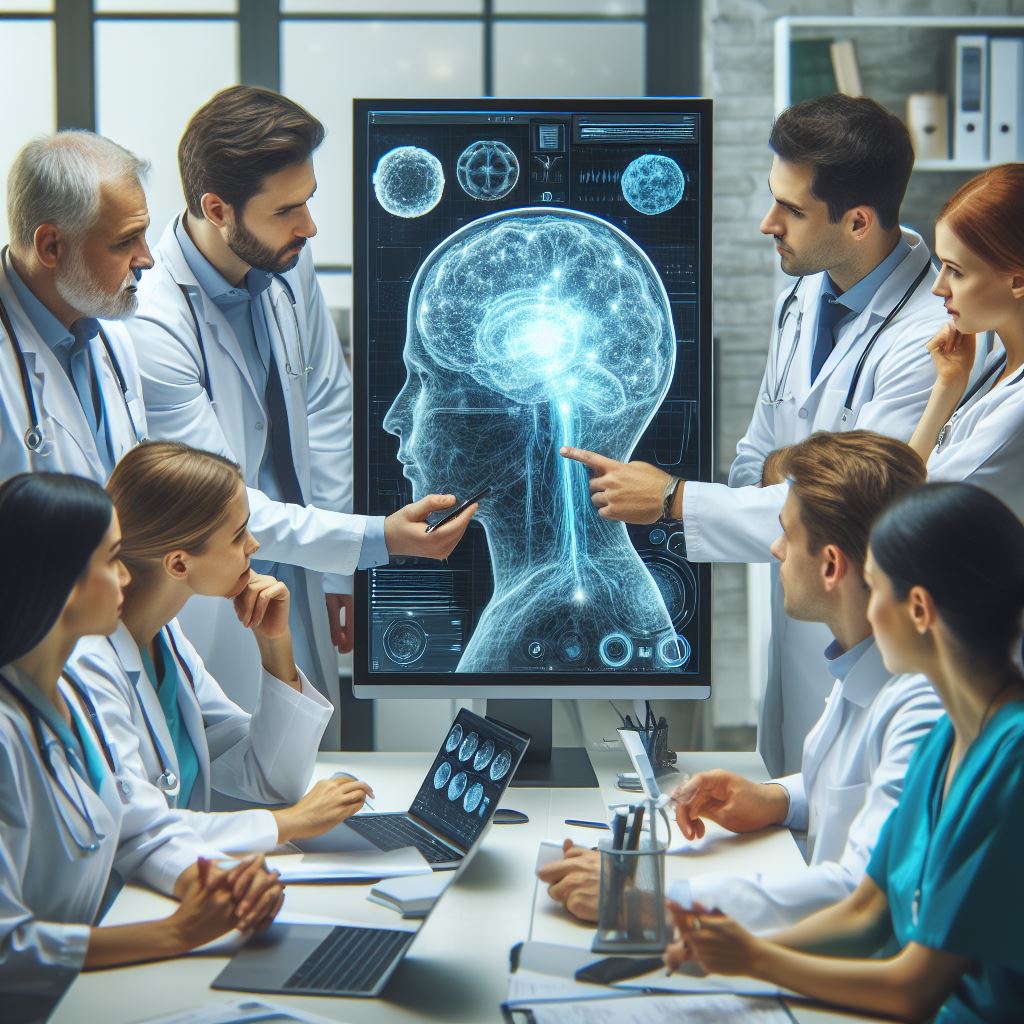
The Role of AI in Diagnostics and Treatment Planning.
There is no industry immune to the revolutionary effects of artificial intelligence (AI), and healthcare is no exception. AI's abilities in data analysis, prediction, and pattern recognition have unleashed game-changing prospects, especially in the realms of diagnosis and therapy. This blog delves deeply into how AI is changing various fields to provide better, more individualized healthcare.
Diagnostics with AI: Going Beyond the Human Eye
Accurate detection and interpretation are essential in diagnostics, and this is where AI excels. Examples of their uses are: In medical imaging, defects in X-rays, MRIs, and CT scans can now be detected by sophisticated algorithms with the same or better precision as human radiologists. For instance, AI models have been shown to detect cancer in its earliest stages, when human doctors may have missed tumors or abnormalities. In the field of pathology, artificial intelligence (AI) is being utilized to examine tissue samples in order to diagnose diseases with astonishing precision at the microscopic level. Artificial intelligence systems can sift through mountains of data to foresee the spread of diseases or the deterioration of individual patients, allowing for preventative care.
Patient-Specific Treatment Planning
AI's strength resides in its ability to recognize and capitalize on each patient's individuality. Therapeutic Individualization: Cancer, diabetes, and other diseases can all benefit from the personalized treatment regimens that can be generated by artificial intelligence algorithms by analyzing a patient's genetic makeup, lifestyle, and health records. Optimal drug dosages and warnings about potentially dangerous interactions can be suggested by AI after it analyzes a patient's health records and current drugs. AI-powered chatbots and applications provide cognitive behavioral therapy, assisting people with mental health issues and supplementing conventional approaches to care.
Upcoming Difficulties
There are still obstacles despite AI's potential to revolutionize the healthcare industry. Privacy and security of patient data is of fundamental importance in this era of widespread digitalization. Given the potentially life-altering implications in healthcare, it is essential that AI systems constantly provide accurate diagnoses and recommendations. Ethical Considerations: Finding a middle ground between AI suggestions and human judgment, removing bias from AI models, and guaranteeing everyone has access to treatment that is informed by AI are all crucial topics of conversation.
Prospects for Future Cooperation
AI will not replace doctors and nurses anytime soon, but it will work in tandem with them to improve healthcare delivery. Healthcare can enter a new era when humans' knowledge, intuition, and empathy are joined with artificial intelligence's precision and data-driven insights.
Conclusion
The potential of AI in diagnoses and treatment planning is clear, but it is still in its early stages of development. Along this road, we will be able to provide healthcare that is more precise, efficient, and individualized thanks to the merging of human care and the capabilities of AI.

